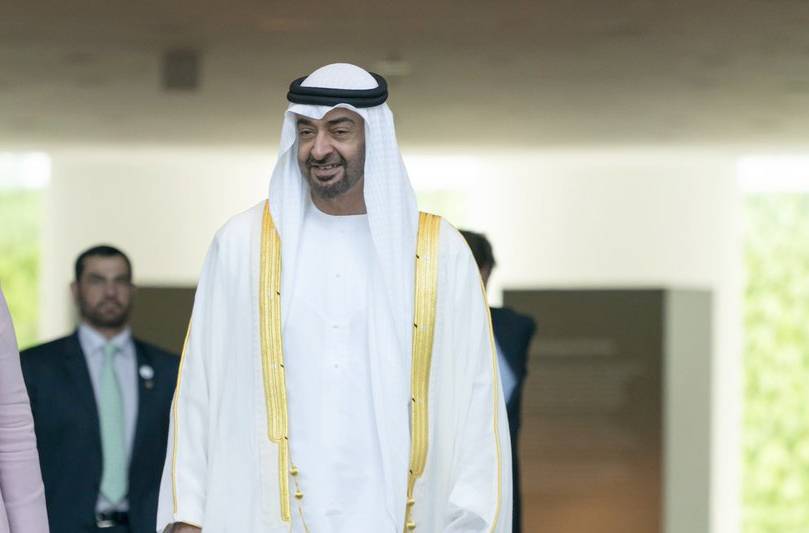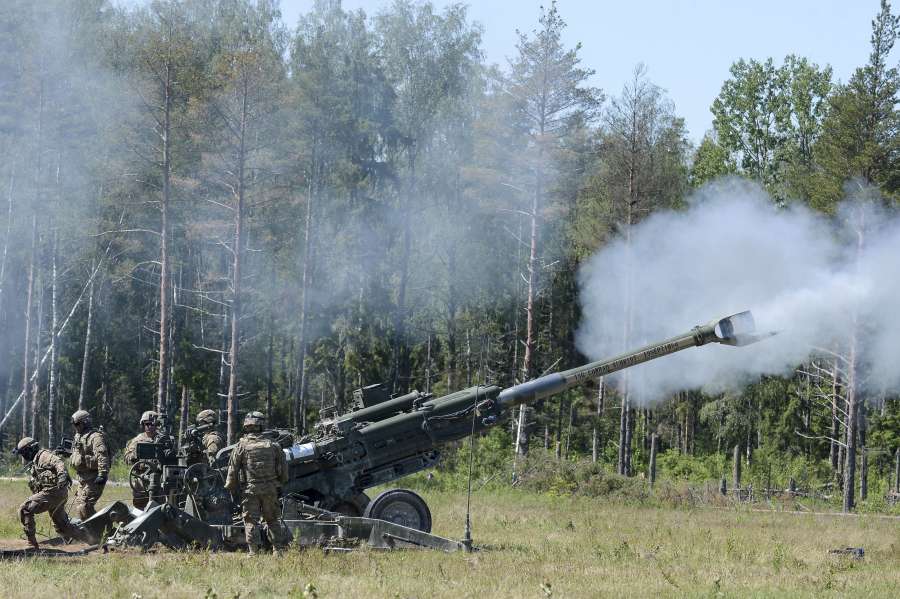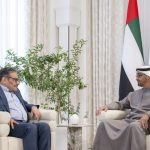The law also supports the goals of international agreements in which the UAE participates, such as those of the World Trade Organisation…reports Asian Lite News
President Sheikh Mohamed bin Zayed Al Nahyan, issued a new law regarding the regulation and development of industry.
The new law was introduced to support the organisation and development of the national industrial sector by increasing the flexibility to adopt more supportive policies and provide incentives. The law aims to be a key enabler for the industrial sector, increase its investment attractiveness, and encourage local and foreign investment in industrial activities, in coordination with federal and local authorities.
The new law will become effective as of January 2023, and will be applied to all industrial activities in the country, including free, economic, and specialised zones.
The law allows the creation of a package of incentives and enablers for the industrial sector that support national strategic objectives to increase industrial competitiveness. This includes the establishment of a national industrial registry that features an integrated database of industrial projects detailing their contributions to the national economy. The database also supports manufacturers with feasibility studies and the evaluation of potential investment opportunities.
The decree-law enhances the role of the Ministry of Industry and Advanced Technology (MoIAT) in promoting investment in the UAE, as well as in the adoption of advanced technologies and Fourth Industrial Revolution solutions. MoIAT will play an expanded role in developing future industries and stimulating innovation and R&D in line with the National In-Country Value Programme.
The law also supports the goals of international agreements in which the UAE participates, such as those of the World Trade Organisation.
The decree-law will replace Federal Law No. 1 of 1979 on industry regulation. It will enhance integration between MoIAT, local economic departments and licensing authorities in free, economic, and specialised zones by standardising the process for issuing industrial licenses.
The decree-law promotes the UAE’s industrial business environment, promoting Legislations’ role as a mechanism that enables the sector’s growth and competitiveness. Other tools include world-class logistics infrastructure and technology adoption.
MoIAT will work with its partners from the Industrial Development Council to complete the executive regulations and organise information workshops for manufacturers about the law.
Through the industrial registry, the law will support a number of sectors including, medicine, food, and medical and agricultural technology. It will also strengthen some of the nation’s most competitive industrial sectors, such as petrochemicals, iron, aluminium and plastics, while stimulating future industries, most notably the hydrogen and aerospace sectors.
The decree also supports the “Make it in the Emirates” initiative launched by MoIAT to enhance the role of the private sector, and attract industrial investors through various incentives and competitive advantages such as legislative and regulatory frameworks, logistical capabilities, financing solutions, export opportunities, comprehensive economic partnership agreements, bilateral trade agreements, and advanced technology adoption.
The decree-law is integrated with a package of projects adopted by MoIAT to support the growth and global competitiveness of priority industries and consolidate the UAE’s position as a global centre for future industries.
The decree created a national industrial registry that includes a database detailing how much each industrial project contributes to the national economy. The data also helps companies and investors to evaluate potential investment opportunities. The registry’s data is protected, and it is prohibited to circulate the data, except in accordance with the conditions specified by the relevant authorities. The registry also outlines a set of obligations that support the performance of industrial facilities, and enhance industrial licensing procedures, permits, and exemptions.
The registry will also promote the development of incentives to support the adoption of advanced technology and 4IR solutions in the industrial sector in line with the recently announced Technological Transformation Program. It also emphasizes the ministry’s role in monitoring all licensed industrial activities in the country.
The decree outlines the obligations of industrial facilities when acquiring an industrial licence. It also defines the mandatory controls, specifications and standards issued by the Ministry and in accordance with the procedures and controls specified by the executive regulations of the law.
In coordination with the relevant government entities, the Ministry of Industry and Advanced Technology aims to promote a sustainable economy in the fields of raw materials, circular economies, and recycling waste.
MoIAT is supporting the objectives of the “Make it in the Emirates” campaign with a number of programs such as the In-Country Value Programme, which succeeded in redirecting more than AED42 billion to the national economy, the Industry 4.0 programme, and the “Make it in the Emirates” Forum, during which major national companies announced their commitment to providing AED110 billion of potential purchase agreements.
The forum also identified 11 priority sectors that contribute AED6 billion annually to the country’s GDP. In terms of quality infrastructure, the UAE ranked first in the Middle East and North Africa, and 11th globally in the Quality Infrastructure Index for Sustainable Development, issued by the United Nations Industrial Development Organisation (UNIDO) and the International Network for Quality Infrastructure.
The UAE’s industrial exports amounted to AED116 billion last year. The country also enhanced its quality infrastructure system, which includes standard specifications, metrology, accreditation, and conformity assessment, to support the performance of the UAE industrial sector.
ALSO READ-UAE elected OIC Vice President for cyber emergencies














